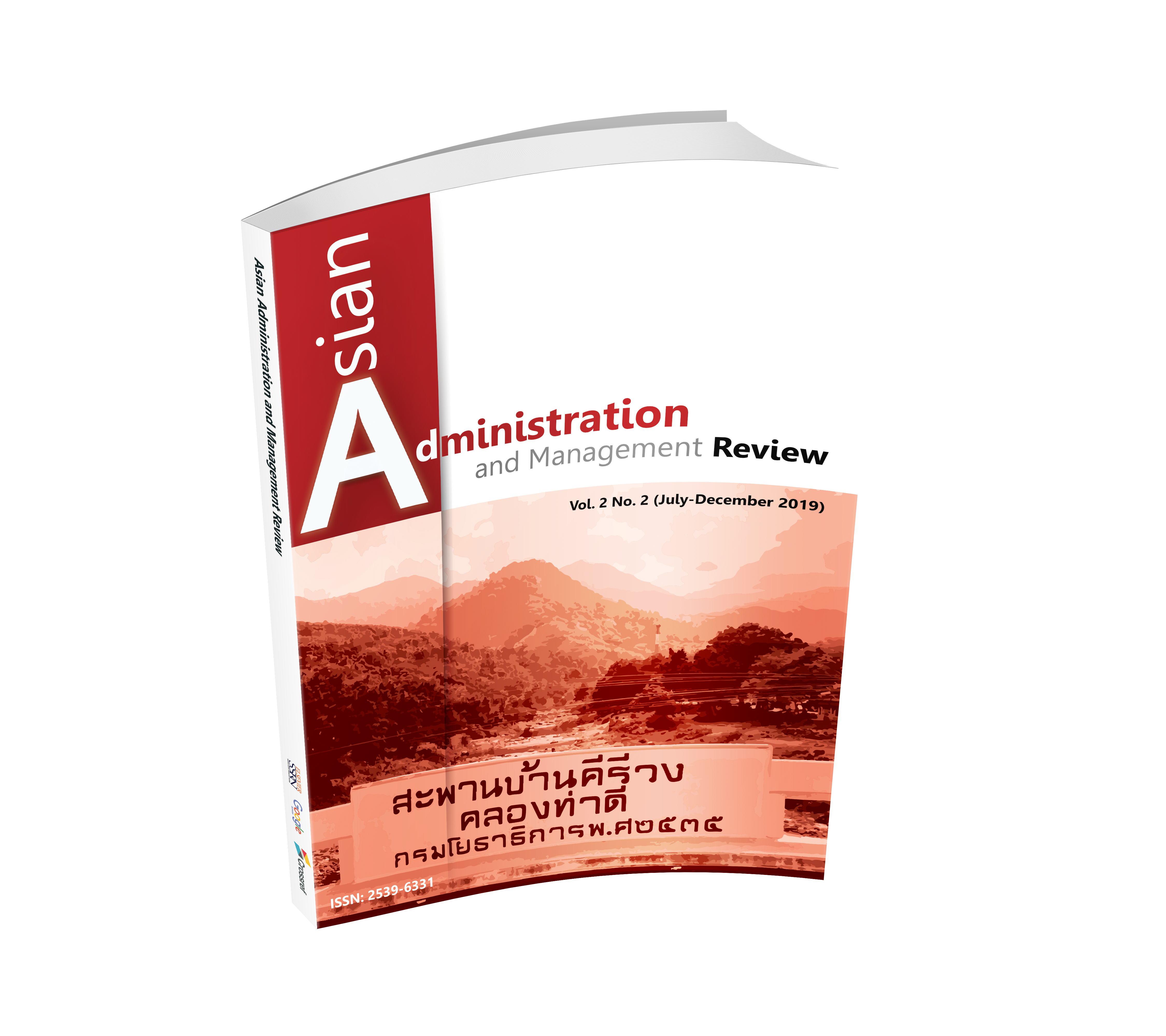A Causal Model of Digital Leadership and School Climates with Work Engagement as Mediator Affecting Effectiveness of Private Schools in Bangkok, Thailand
Keywords:
Digital Leadership, School Climates, Work Engagement, School EffectivenessAbstract
The objective of this study was to study 1) develop and validate of digital leadership of school directors and school climates through work engagement affecting effectiveness of private schools in the Bangkok 2) Developing and validating consistency of a causal model of digital leadership and school climates with work engagement as mediators, affecting effectiveness of private school in Bangkok. This is quantitative research. A sample of 440 was randomly drawn from teachers in private schools in Bangkok in 2018 academic year. The instrument was a questionnaire, constructed by the researcher with overall reliability of .98. The data was analyzed using percentage, mean, standard deviation and structural equation modeling analysis. The research results were; 1) digital leadership, school climates, work engagement and effectiveness of school were overall at the high level ( = 4.26, S.D. = .78). 2) Developing and validating consistency of a causal model of digital leadership, school climates, effectiveness of schools were very well fitted with empirical data ( 2 = 135.21, df = 84, 2/df = 1.61, P-value = 0.00034, GFI = 0.97, AGFI = 0.93, RMR = 0.01 and RMSEA =0.04). 3) The digital leadership had direct, indirect and total influence on effectiveness of school at .05 statistical level of significance. The influence coefficients were 0.40, 0.03 and 0.43 respectively and the school climates had direct, indirect and total influence on effectiveness of school at .05 statistical level of significance. The influence coefficients were 0.57 0.14 and 0.71 respectively.
Downloads












.png)


